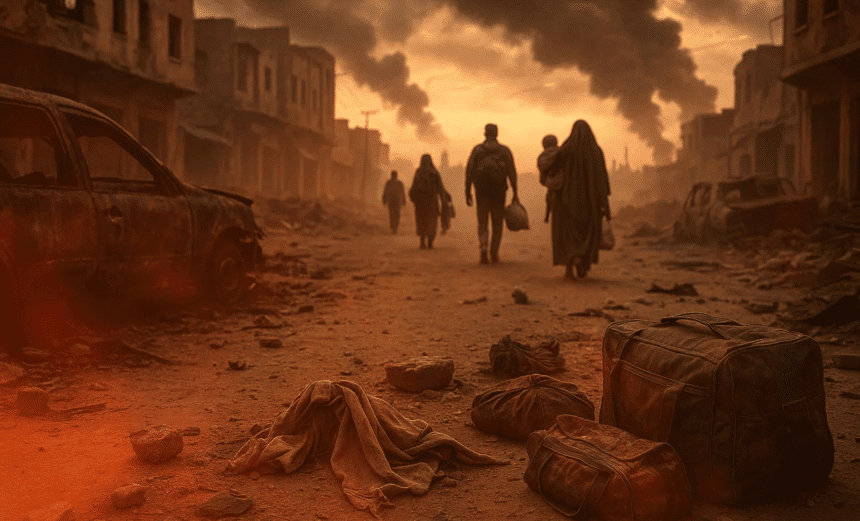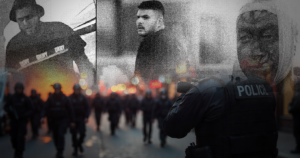The civil war in Sudan, now well into its second year, continues to escalate with devastating consequences for civilians across the country. The conflict, which erupted in April 2023, initially centered around the capital Khartoum, has now spread to Darfur, Kordofan, Gezira State, and eastern Sudan, creating one of the world’s worst humanitarian emergencies in recent history.
The war began after a long-brewing power struggle between the Sudanese Armed Forces (SAF), led by General Abdel Fattah al-Burhan, and the Rapid Support Forces (RSF), commanded by General Mohamed Hamdan Dagalo, widely known as Hemedti. Both sides had jointly overthrown Omar al-Bashir in 2019 and later staged the 2021 coup that derailed Sudan’s democratic transition. Tensions finally exploded when negotiations over integrating the RSF into the national military collapsed, quickly plunging the country into an all-out civil war.
More than 15,000 people have been reported killed, though humanitarian organizations warn the real number is far higher due to communication blackouts, mass graves, and blocked access to conflict areas. Over 8.5 million Sudanese have been displaced, the largest displacement crisis in the world today, forcing families to flee on foot toward Chad, South Sudan, Egypt, and Ethiopia. The United Nations describes Sudan as being “on the brink of famine,” with 25 million people, half the population, needing urgent assistance.
Khartoum, once a bustling metropolis, has become a battleground. Entire neighborhoods have been reduced to rubble as airstrikes, artillery, and infantry battles continue. In West Darfur, reports of ethnic killings, mass violence, and targeted attacks on the Masalit community have alarmed regional actors. Human rights groups have warned that the patterns of violence resemble the atrocities committed during the Darfur genocide of the early 2000s.
Aid agencies face almost impossible conditions. Warehouses have been looted, convoys blocked, workers attacked, and critical supply routes cut off. Only a fraction of humanitarian relief is reaching civilians. The World Food Programme (WFP) estimates that nearly 18 million Sudanese are facing acute food insecurity, while UNICEF warns that 3 million children are severely malnourished. Medical systems have nearly collapsed, with over 70% of hospitals no longer functioning.
International actors have struggled to mediate. A series of negotiations hosted in Jeddah, backed by the United States and Saudi Arabia, produced repeated ceasefires that collapsed within hours. African Union and IGAD efforts have also been repeatedly undermined by a lack of trust between the warring factions, foreign interference, and fragmented command structures on the ground. Both SAF and RSF have reportedly received external backing, fuel, weapons, and political support from regional powers who see Sudan as a strategic battleground.
As fighting spreads toward Port Sudan, the country’s main humanitarian and economic lifeline, fears are growing of a wider regional spillover. Chad, South Sudan, and the Central African Republic, already unstable, are now hosting hundreds of thousands of refugees. Egypt has tightened border controls as arrivals surged. Analysts warn that if the war continues unchecked, Sudan could become the center of a prolonged regional conflict, destabilizing the entire Horn of Africa.
The economic impact has been catastrophic. Sudan’s currency has collapsed, inflation is soaring, agricultural production has plummeted, and fuel shortages are widespread. The once-promising hopes of a democratic transition after Bashir’s fall have been replaced with uncertainty and despair. Universities, courts, and government institutions have largely ceased functioning, creating a governance vacuum that both SAF and RSF are trying to exploit.
Global response has remained limited. While the UN and NGOs have appealed for billions in aid, funding gaps remain massive, with only a fraction of the required humanitarian needs being financed. Western attention has been diverted by conflicts in Ukraine and Gaza, leaving Sudan dangerously underrepresented on the world stage. Humanitarian experts warn that unless international pressure increases and aid access is restored, Sudan is heading toward famine-level conditions not seen since Ethiopia in the 1980s.
Despite the bleak outlook, local civil society groups continue to push for peace, documenting abuses, coordinating community relief, and calling for international justice mechanisms. Many Sudanese activists argue that any long-term solution must rebuild the democratic aspirations that emerged during the 2019 revolution and ensure accountability for both SAF and RSF.
As the conflict enters yet another year, the suffering of millions of Sudanese remains a stark reminder of the cost of political power struggles. Without decisive global action, Sudan risks becoming a protracted war zone and one of the defining humanitarian catastrophes of the decade.













